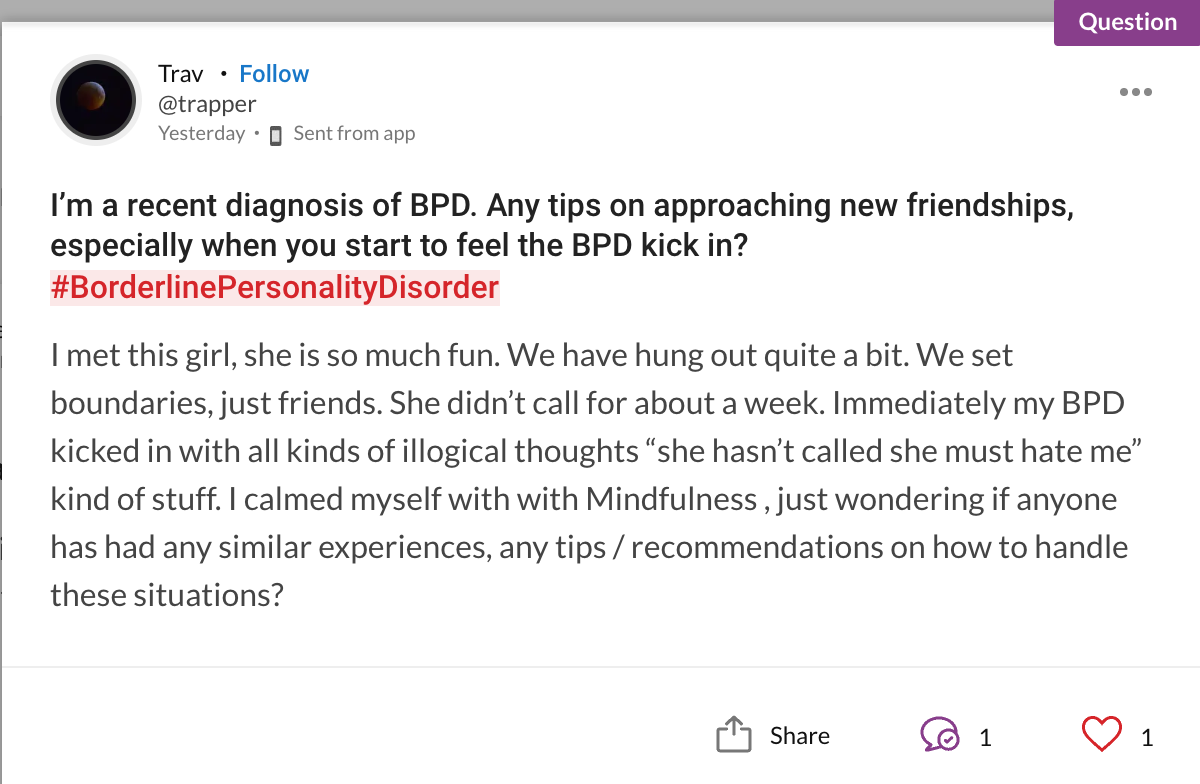The Stigma I Face as a Mental Health Professional Hiding My Own BPD
Since graduating with a Bachelor of Science Psychology degree in 2016, I have worked in a secure forensic psychiatric hospital in Birmingham, UK.
I work with intelligent, educated people, from nurses to psychiatrists, social workers and occupational therapists. They all have a passion to support people in their mental health recovery, yet collectively, professionals in psychiatry are some of the most stigmatizing people I have ever met. I have never disclosed my borderline personality disorder (BPD) at work, and I’ve spent two years fearful that anyone might find out.
When I began my role, I was a member of a BPD group on Facebook. A colleague sent me a message with a screenshot of this and said: “LOL, do you need a bed at work?!” He assumed, because I had a mental illness, I should be locked away in a secure unit. I was so mortified, I made up some lie about being a member because a cousin had BPD. I then left every BPD group I was a member off for fear of other colleagues seeing them.
Join the conversation!
Answer your fellow Mighty’s question.
I think the issue is that psychiatry creates an “us” and “them” mentality. Staff are supposed to be mentally strong and “healthy” and the patients are the “unwell” ones — that’s how it works. There is a view that having a mental disorder means you will somehow spread your unhealthy thought processes and behaviors amongst patients. I know, if I were to disclose I had BPD, I would be told I needed extra supervision to ensure I don’t share my maladaptive coping strategies with patients — as if!
Psychiatry is a very black-and-white industry, where someone is either “well” or “unwell” and there is little room for grey areas. Sadly, this view works in reverse too. Our patients are protected from our realities; they see us as high-functioning, healthy, strong people who never have bad days or struggle with mental illness. It creates a standard they feel they could never achieve and can make them feel we can never understand how hard recovery can be.
In reality, my BPD means I do understand. It means I am so much more compassionate and understanding than any of my colleagues. It frustrates me to hear these intelligent individuals make assumptions about our patients that are so off the mark on a daily basis. I want to scream “No, that’s not why they are doing this!” each time it happens. I want to explain why BPD makes you behave in certain ways, and how isolating it feels when your self-worth is at rock bottom and you assume all those around you will ultimately leave you.
I also long to tell my patients, who are often so helpless, that recovery is possible — that you can live a relatively normal life with BPD, and you are worthwhile, but instead I will always fear the repercussions of disclosure and this breaks my heart.
Follow this journey on the author’s blog.
Photo by Brad Lloyd on Unsplash


